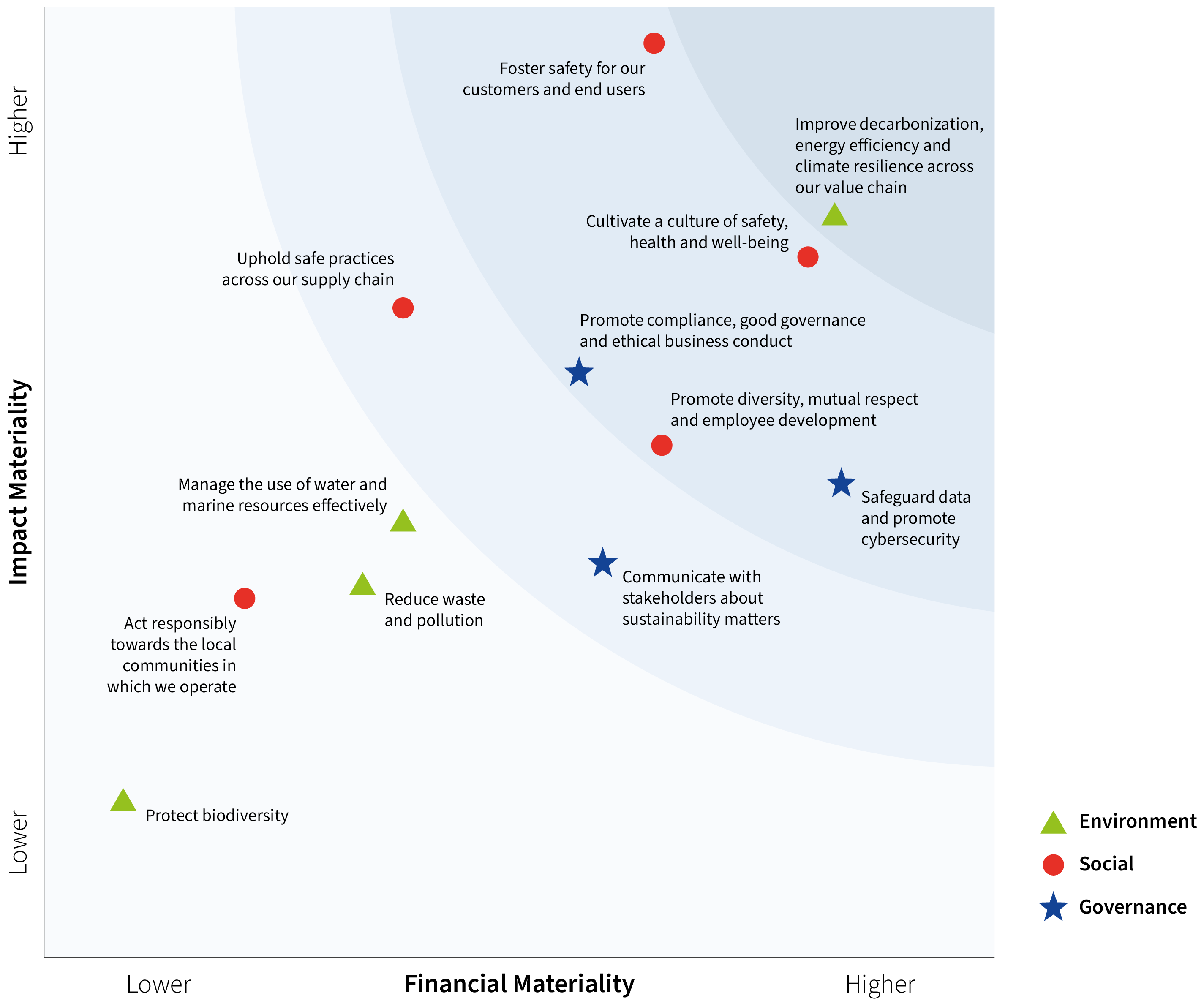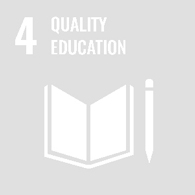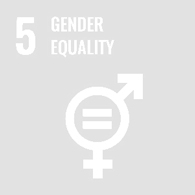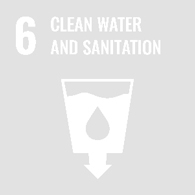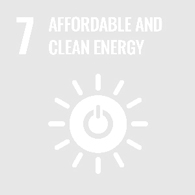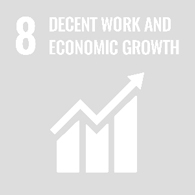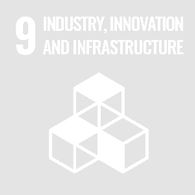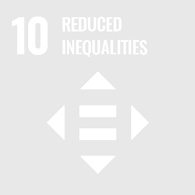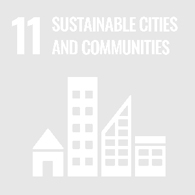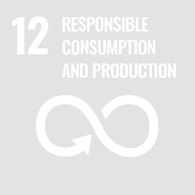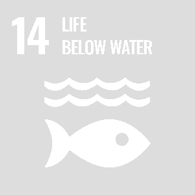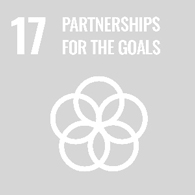Strategic integration of Corporate Responsibility
Breadcrumb
Strategic Integration of Sustainability
Nested Applications
Strategic integration of Corporate Responsibility
Sustainability factors may present both opportunities and risks to the company, as well as having a potential impact on many stakeholders, including our customers, our employees, our suppliers, the communities where we operate, the environment and society, together with our shareholders and financial partners. Material topics are those which are most significant on either or both dimensions.
In 2023 a new risk management policy and process was established at Messer - derived from the requirements of ISO 31000:2018 Guidelines. The global Risk Management System includes a regular risk reporting to the Messer Executive Management Board and Supervisory Board in order that material risks may be actively managed. Risks (and opportunities) are categorized under “sustainability” if they relate to the anchoring of sustainability objectives or targets within the company, or to impacts on stakeholders.
For example, global warming and the shift towards a decarbonized economy may present environmental risks including higher insurance rates, potential carbon taxes, penalties or changes in processes and value chains. It also presents significant business opportunities, including growing demand for carbon capture, improved process efficiency and zero-emission gases, including renewable hydrogen, in industrial, transport, medical and scientific sectors.
The most material sustainability topics are recognized by the Executive Management Board and prioritized for action by setting goals, defining responsibilities, establishing policies, and monitoring progress since 2014).
At Messer, these include:
- Decarbonization: we want to contribute to a successful transition to a decarbonized economy and so to realize our opportunities whilst recognizing our responsibilities;
- Diversity: we want the benefit of a diverse and inclusive workforce, in order to maximize our access to talent and our corporate intelligence;
- Safety: we want all our employees and those who work with us throughout the value chain to go home safely every day.
Messer’s local businesses are run by entrepreneurial management teams while the Executive Management Board decides on leadership, group-wide strategy and financial policy, organizational matters, and capital allocation. Messer is fully committed to responsible behaviors, focused around the areas of Safety, Environment, Quality and Health (SHEQ). The Company’s business model is aligned with its Environmental, Social and Governance (ESG) targets concerning safety, diversity and decarbonization. It generates value by supporting its customers towards their goals, for example by improving their carbon footprint, given its position as an integral part within their value chain.
Management is responsible for developing strategies and delivering progress towards business goals set by the Executive Management Board. Strategic objectives include the management of our own carbon footprint, the pursuit of business opportunities, the mitigation of climate-related or safety risks, the satisfaction of customers whose imperatives include a reduction in their CO₂ emissions, the achievement of operational excellence and financial sustainability.
Commitment of the Executive Management Board to Sustainability
Messer is an international group that lives the values of a privately owned company. As a specialist in industrial, medical and specialty gases, we have defined ESG (Environment, Social, Governance) guidelines that are practiced by the entire team.
Our mission statement, which summarizes our vision, our mission, and our values, plays an important role in the central embedding of ESG. ESG also focuses on the requirements of our customers and our shared responsibility for the environment, people, and progress.
Sustainability commitments of the management
Environmental protection
Our gases and Messer’s application expertise contribute to the UN’s declared goal of achieving climate neutrality by 2050. To achieve this, we are minimizing our own CO₂ footprint and helping our customers to reduce CO₂ emissions in their applications. This is made possible by the effect of our gas applications and efficient gas supply, among other things.
We want to reduce the emissions intensity of our global activities by 40% by 2030 compared to 2019, measured in kg CO₂e per euro of EBITDA.
We see green hydrogen as a lever for decarbonizing industry and mobility. Based on our H₂ expertise, we are focusing on the particularly economical on-site production of green hydrogen, customized refueling solutions and an operator model for the use of fuel cell-powered electric buses in local public transport. Another focus is on the recovery of CO₂ emissions from industrial exhaust air and subsequent recycling or storage.
Safety, diversity, and inclusion
Our focus is on the greatest possible safety for our employees and customers.
Our aim is to prevent accidents among our employees and our customers’ employees.
As part of our diversity and inclusion management, we want to increase the proportion of female managers at first and second management levels to 30 percent by 2030.
We consistently develop the potential of our international and multicultural teams. For us, mixed management teams are a prerequisite for achieving balanced and profitable cooperation at a strategic level.
Governance
We reflect the legal requirements for ESG reporting in our Group guidelines.
We utilize our potential in terms of employees, expertise, and customer satisfaction.
We pursue strategies and measures for sustainable growth and secure financing of our investments.
We find ways to involve our team even better in the development of new ideas. We encourage our employees to demonstrate their personal ESG commitment in line with Messer’s mission.

Creation of our materiality matrix
In 2023, Messer conducted a materiality assessment to update the company’s material topics and refresh the materiality matrix used to prioritize sustainability efforts worldwide.
This approach not only examined Messer’s current and potential impacts on the environment and society (impact materiality), but also the current and potential impacts of external ecosystems on Messer’s financial performance (financial materiality). It gave us a unique opportunity to engage with our stakeholders, better understand evolving expectations and engage them in Messer’s sustainability journey.
We followed a systematic process to complete the double materiality assessment:
- Defining sustainability topics. We started by establishing and assessing a list of 220 sustainability topics derived from the most recent materiality assessment, the ESRS topic list, peer reviews, rating agency focus areas and relevant industry reports.
- Refining sustainability topic short list. Our assessment led us to a list of 12 sustainability topics that we believe are most relevant to Messer, considering Messer’s business operations and potential impacts, risks, and opportunities.
- Interviewing and surveying affected stakeholders. We conducted interviews with selected internal and external stakeholders in Asia, Europe, and the Americas, including customers, suppliers, financial partners, and members of the leadership teams. Furthermore, anonymous surveys were used to gather insights from Messer employees and social media followers.
- Analyzing results and defining materiality. After analyzing and validating the data, we shared the matrix output with internal stakeholders, including Messer’s experts from various business domains as well as the Executive Management Board. We set our material thresholds and documented Messer’s materiality process.
The highest impact topics identified as part of Messer’s materiality assessment and their related definitions are listed below in alphabetical order:
- Communicate with stakeholders about sustainability matters
Communicating with stakeholders about sustainability matters refers to how Messer engages with affected stakeholder groups regarding the impact of material topics as well as its progress and achievements on environmental, social, and governance-related programs, including business conduct.
- Cultivate a culture of safety, health, and well-being
Cultivating a culture of safety, health and well-being refers to Messer’s commitment to build a strong safety culture and its obligation to offer the highest level of safety to its employees, whether they work in plants, construction, transportation or in administrative workplaces. This also encompasses Messer’s efforts to ensure the physical and mental health of employees, and work-life balance.
- Foster safety for our customers and end users
Fostering safety for our customers and end users refers to Messer’s commitment to ensuring that its customers and end users use its industrial gases, related equipment, and services in a safe manner. This includes providing ongoing safety education and related training to our customers.
- Improve decarbonization, energy efficiency and climate resilience across our value chain
Improving decarbonization, energy efficiency, and climate resilience across Messer’s value chain refers to Messer’s actions to continuously minimize emissions through the sustainable use of energy, the mitigation of climate risks, as well as decarbonization efforts. These actions include product and application technologies and innovations to support a circular economy and deliver alternative solutions that have a positive impact across its value chain. This will help Messer and its value chain partners to reduce their ecological footprint, enhance their climate resilience, and improve energy efficiency in their operations.
- Promote compliance, good governance, and ethical business conduct
Promoting compliance, good governance and ethical business conduct refers to Messer’s practices, policies, and procedures that ensure appropriate business conduct and strict compliance with the law. This includes tracking as well as corrective actions concerning incidents of corruption and bribery, procedures, and policies for the protection of whistleblowers, and policies for relationship management. Further, this includes establishing policies and trainings for Messer’s workforce which enforce the protection and detection of non-compliance.
- Promote diversity, mutual respect, and employee development
Promoting diversity, mutual respect and employee development refers to Messer’s efforts to creating a prejudice-free and appreciative working environment where everyone can thrive, irrespective of gender, nationality, ethnic or social origin or caste, religion, ideology, disability, age, sexual orientation or sexual identity for all employees and workers in the value chain. This includes efforts to train and develop employees, so they feel valued and appreciated.
- Safeguard data and promote cybersecurity
Safeguarding data and promoting cybersecurity refers to Messer’s commitment to comply with applicable data protection regulations as well as implement preventive measures to protect the company against unauthorized access and cyberattacks. This includes handling personal and business data of their employees, customers, and business contacts in a legally compliant manner and implementing organizational and documentation measures specified by data protection law to ensure privacy.
- Uphold safe practices across our supply chain
Upholding safe practices across our supply chain refers to Messer’s commitment to protecting and promoting the safety of the workers in its value chain, in particular contractors and suppliers in construction, plant maintenance and operation, and logistics and transportation. This includes supporting their right to collective bargaining and freedom of association.
Messer will also continue to monitor the following topics in the light of trends and new developments to take into account evolving expectations and business conditions:
- Act responsibly towards the local communities in which we operate
Acting responsibly towards the local communities in which we operate means managing the impact of Messer’s activities on the affected communities in which it operates, as well as contributing to the development of local communities.
- Manage the use of water and marine resources effectively
Managing the use of water and marine resources effectively includes ensuring sustainable practices for the extraction from, use and discharge of water.
- Protect biodiversity
Protecting biodiversity refers to managing the impact on the state of the species (animals and plants) within the ecosystems that Messer operates in.
- Reduce waste and pollution
Reducing waste and pollution refers to the responsible management and avoidance of air, soil, and water pollution, as well as the reduction of waste by enhancing the efficiency of Messer’s processes and its value chain.
Key Performance Indicators for Sustainability
Key Performance Indicators for Sustainability
Our corporate values are anchored in a focus on customers and employees, responsible action, corporate responsibility, open communication, and trust and respect. To make these values and our development in terms of sustainable action measurable and comparable, we have been using key performance indicators (KPIs) for sustainability since 2014.
Through measurable targets, we document our improvements and developments in the various business areas. This sustainability report, based on the UN Sustainable Development Goals, includes harmonized key performance indicators relating to sustainability. Each dedicated chapter of the report then provides information on the evolution of some of these indicators.

Changes in the Executive Management Board and Supervisory Board
Changes in the Executive Management Board and Supervisory Board
Bernd Eulitz has been appointed as the new CEO of Messer with effect from April 26, 2023. In the coming years, he will realize Messer’s full potential in the new structure created in November 2023 as a customer- and value-oriented gas player. With his extensive experience in the gases business, together with his strong management team and the loyal and highly qualified international workforce, Bernd Eulitz will successfully shape the future of Messer in this spirit.
Bernd Eulitz joined the Messer Group as Deputy Chairman of the Executive Management Board at the beginning of 2022. Previously, he was the CEO of a German Mdax company. Bernd Eulitz has more than 20 years of experience in the industrial gases sector. Among other things, he held various management positions in Germany and abroad at Linde, where he was a member of the Executive Board from 2015 to 2019.
Helmut Kaschenz has been appointed Chief Financial Officer (CFO) of Messer SE & Co. KGaA with effect from January 1, 2022. He took over the position from Dr. Uwe Bechtolf. Before joining Messer, Helmut Kaschenz worked for 25 years in corporate and institutional banking in New York, London, and Frankfurt/Main as well as in the chemical industry.
Virginia Esly has been appointed to the Messer Executive Management Board as Chief Operational Officer (COO) Europe as of January 2, 2023. This makes her the first female board member in Messer’s history. Virginia Esly has over twenty years of experience in the industrial gases business. She succeeds Ernst Bode.
Elena Skvortsova has represented the Americas region on the Messer Executive Management Board as COO Americas since November 22, 2023. She began her professional career in 1994 at Bayer AG in Germany. In 2001, she moved to the USA to work for Baxter International Inc. where she most recently served as Vice President BioScience until 2015. Elena then moved to the industrial gases sector and held the position of President Middle East & Eastern Europe at Linde in Munich before taking over responsibility for Praxair’s Canadian business until 2020. Most recently, she was a member of the Executive Board of OMV AG in Vienna, Austria.
Dr. Werner Hickel, took over the position of COO Asia on November 22, 2023, and thus continued to be responsible for the business in China and the ASEAN countries. Werner Hickel joined Messer in 1998 and was appointed Finance Director of Messer China in Shanghai in 2000. From 2003 to 2018, he was COO and later CEO Messer China/ASEAN.
In 2023, Stefan Messer relinquished his position as Chairman of the Executive Management Board and thus the operational management of Messer and moved to the top of the Supervisory Board on April 27. The long-standing Chairman of the Supervisory Board, Dr. Jürgen Heraeus, is now an honorary member of the Board. Stefan Messer, a third-generation shareholder, had been at the helm of Messer since 2004.
Our Business Model
With over 125 years of history, Messer is the world’s largest privately held specialist for industrial, medical and specialty gases. Building on this heritage, the company today is the leading independent provider of industrial gases with revenues of around 4.4 billion euros in 2023.
Messer manufactures and supplies oxygen, nitrogen, argon, carbon dioxide, hydrogen, helium, shielding gases for welding, specialty gases, medical gases, and food gases as well as many different gas mixtures. The highest sales contribution comes from air gases. The portfolio is further complemented by non-air technical, specialty and medical gases as well as valued-added services including application technologies, hardware, and others.
Messer’s products are used across a broad spectrum of diversified end markets, including industry, environmental protection, health services, the food and beverage sector, welding and cutting technology, 3D printing, construction, research, and science. Gases products deliver various advantages to Messer’s customers through gas applications technology including greater efficiency, higher safety, and lower environmental footprint.
The company has a resilient business model due to regional, product and distribution diversification, mission criticality of products (typical for the industrial gases sector), many non-cyclical end markets, long-term contracts, and a flexible cost structure.
Messer has a strong sustainability profile, based on the alignment of its objectives for safety, decarbonization, and diversity with stakeholder priorities, especially those of its customers.
Messer’s environmental philosophy is centered on responsible energy sourcing, efficient energy use, and environmental applications:
- High energy efficiency of its air separation units and rising share of renewable energy (GHG Protocol Scope 2).
- Growth opportunities in carbon capture and renewable hydrogen.
- Environmental applications supporting decarbonization of customers’ processes.
- Successful partnerships creating added value in application technologies supporting decarbonization.
Our Business Model (accordion)
Intellectual property - patents and trademarks
Patents serve to protect the results of research and development of Messer and their further development for commercial use.
Messer owns over 1,000 patents worldwide. They strengthen Messer’s competitive position by creating competitive advantages through the monopolization of certain products or processes.
The Messer company logo and logotype, as well as many products, processes, and services, are protected by registered trademarks (over 800 in total in more than 50 countries). Should a competitor use identical or similar designations for identical or similar items, Messer will take all measures to protect its own rights.
The registered trademarks of the Messer Group are generally only used by Messer Group companies. The property rights of competitors are respected in all activities of the Messer Group.
Sustainable, documented supply chain
At Messer, we strive to always act with a high degree of integrity and reliability in everything we do. Since the founding of Messer, we have valued responsible behavior towards people and the environment, and compliance with the law, as cornerstones of the way we do business. Consequently, we expect that our Business Partners act responsibly and in compliance with all applicable laws, too.
Group Compliance oversees key measures relating to the supply chain. In 2023, for example, necessary guidelines were drawn up to combat bribery/corruption and for third-party management. A Business Partner Code of Conduct and a Declaration of Principles for Human Rights and Working Conditions were developed across departments and represent uniform, globally binding guidelines for all Messer business partners that are based on the ten principles of the United Nations Global Compact and focus on internationally recognized human rights, labor standards and working conditions.
Messer has also implemented a Third-Party Management System, starting with Europe. This enables Messer to fulfill its extensive due diligence obligations with regard to the review, selection, and monitoring of its business partners (third parties).
These requirements are becoming more stringent worldwide due to legal and contractual obligations, not least under the German Supply Chain Due Diligence Act (LkSG) or the EU Corporate Sustainability Due Diligence Directive (EU CSDD). These third-party audits cover reputational, corruption, and sanction risks and will be expanded in the future to include human rights, occupational health and safety, and environmental protection issues throughout Messer’s entire value chain, including direct and indirect suppliers, service providers, and customers.
In 2023 an IT solution (“Third-Party Risk Management Tool”) was purchased to standardize and simplify the process of supplier due diligence and management. It is adapted to Messer-specific requirements and will be made available to all group companies.
Governance of the company
Decision-making processes and control procedures
The information on reporting lines between the Executive Management Board and the supervisory bodies is derived from the shareholder agreement between Messer and GIC, the Articles of Association and the rules of procedure for the Management Board of Messer Management SE and the rules of procedure for the Managing Partner of Messer SE & Co. KGaA.
The obligation of the Messer organization to report to the Executive Management Board is regulated in a catalog of legal transactions requiring approval.
The decision-making processes are defined in the organization via a delegation of authority, such as rules of procedure, policies and/or guidelines.
The ICS and Internal Audit departments ensure internal control procedures.
Messer appoints Patricia Hargil as Chief Sustainability Officer
In April 2024, Messer created the global position of Chief Sustainability Officer effective immediately reporting to Bernd Eulitz. In this new role, Patricia Hargil, as the Chief Sustainability Officer, will focus on working closely with regional and corporate functions to further progress our Environment, Social, and Governance (ESG) and Diversity & Inclusion (D&I) agendas, building on what we have accomplished to date, facilitating the process of ESG reporting and establishing a program that will solidify our commitment to responsibly operate our company.
Messer Compliance Management System
With the Messer Compliance Management System (Messer CMS), we have implemented an organizational concept that defines the practical implementation of our responsibilities. The purpose of the organizational concept is to prevent violations of the Messer Code in advance. It provides a binding framework for dealing with conflicts of interest and for complying with applicable laws, regulatory provisions and internal and external rules and regulations in all our business units. The Messer CMS is supported by a clear commitment on the part of the Executive Management Board, managers and senior executives and serves as an instrument for creating trust.
Messer SE & Co. KGaA has issued binding compliance guidelines for its companies. These include, in particular, the Code of Conduct, the Business Partner Code of Conduct and the Group Guidelines. Management and employees are regularly informed and trained on the content and any amendments to these guidelines, other policies, and rules of conduct.
The Executive Management Board is responsible for monitoring the Messer CMS. This organizational concept is binding for all executives, managers, and employees of Messer. The managing directors are responsible for implementing this organizational concept in their own national company and ensuring compliance with it, taking into account applicable legal provisions. The Executive Management Board has appointed a Chief Compliance Officer (“CCO”) to support the managers and supervisory bodies. The CCO is supported by the Corporate Compliance department. In addition, there are the Local Compliance Officers appointed by the regional managers in consultation with the respective country managers. The group of compliance officers is supplemented by the central department heads in the Corporate Office as (specialist) departmental compliance officers. The Executive Management Board has defined the tasks, rights, and duties of the Compliance Officers in a Compliance Officer Directive.
Messer also conducted a risk analysis including all national subsidiaries and corporate departments to manage risks accordingly. Classroom training, webinars, and e-learning courses are held on selected topics relating to the Messer Code. The central specialist departments and the local managing directors and specialist departments generally determine the compliance training content and the employees to be trained. They are responsible for organizing and conducting the training courses, supported by external service providers if necessary, and ensure that they are properly documented. In addition, the Executive Management Board can specify binding training courses and training content as well as the group of employees to be trained.
Internal compliance audits are used to review the implementation of compliance guidelines in all national companies, in particular the Group Guidelines. Group Compliance makes a statement on important compliance areas such as compliance culture, compliance objectives, compliance risks, compliance program, compliance organization, compliance communication and compliance monitoring and improvement. Any identified need for improvement and remedial measures in individual areas are implemented through a continuous follow-up process.
With the Messer Integrity Line, Messer offers a communication platform through which information and (possible) grievances can be reported in an uncomplicated manner. Employees can address their comments and suspicions about possible compliance violations to defined contact persons in a simple, legally compliant, and confidential manner. Compliance violations are both prosecuted, punished, and used for reflection in order to adopt preventive measures so that a similar violation with the associated risk does not occur again in the future. The whistleblower channel is also available to business partners and is communicated on the websites of national companies. In 2023 there were 24 (previous year: 5) suspected cases of compliance violations at Messer, none of which were confirmed after investigation. This increase in compliance-related reports shows increased awareness, and a sense of responsibility as well as trust within Messer to actively deal with and report suspected cases. Employees are consciously motivated by the easily accessible and understandable Integrity Line, training courses and a clear and unambiguous “Tone from the Top” to constructively avert risks for the company and its employees, and thus continuously improve processes.
Revised purchasing policy for electricity
In January 2023, the Executive Management Board of Messer SE & Co. KGaA approved the amended purchasing policy for electricity within the Compliance Management System.
The aim is to spread risks as widely as possible and increase planning security by means of a binding energy purchasing strategy.
The policy also contains a passage on covering electricity requirements via power purchase agreements (long-term electricity supply contracts between a renewable energy producer and a buyer) as a further diversification component, but also as a key factor in achieving the ESG targets set.
HR guideline and legal handbook
In February 2023, the Executive Management Board of Messer SE & Co. KGaA approved the amended HR Guideline (Rev. 2, February 1, 2023) and the amended Legal Manual (Rev. 2, January 1, 2023) within the Compliance Management System (CMS).
The aim of the HR guideline is to take account of the changed requirements when hiring employees and to update the corresponding approval procedures.
The Legal Manual has been adapted to Messer’s new legal form and structure.
Risk management guideline
In July 2023, the Executive Management Board of Messer SE & Co. KGaA approved the newly created risk management guideline within the Compliance Management System (CMS).
The aim of this guideline is to set the regulatory framework for the new Messer risk management system.
The guideline applies globally within the Messer Group and supports early risk identification. Being aware of risks creates transparency, increases planning security, and secures our corporate success in the long term with targeted measures.
New IT security policy
In September 2023, the Executive Management Board of Messer SE & Co. KGaA approved the newly created IT/security policy within the Compliance Management System (CMS).
The aim of this policy is to ensure a higher level of protection for all information processed at Messer worldwide, in particular to minimize the risk of loss or unintentional disclosure and to avert the associated economic damage. To this end, confidentiality, availability, and integrity must be fulfilled as the basic requirements for information in our company. Information security at Messer affects all areas of the organization worldwide and their digital and non-electronic or manual processes for processing information. The policy regulates, for example, the handling of information and purpose-related company knowledge and the disclosure or non-disclosure to different recipient groups on the basis of an information classification. It also addresses the secure handling of the infrastructure provided by the company (PC; mobile devices), cloud services or protection against unauthorized access (e.g., minimum password requirements, etc.). The requirements relevant for all target groups in dealing with (IT) security incidents complete the new guideline. The maintenance of business operations (business continuity management; BCM) is also an important chapter.
Business Partner Code of Conduct and compliance clauses
The Executive Management Board of Messer SE & Co. KGaA adopted the Business Partner Code of Conduct (“Business Partner CoC”) in October 2023. In addition to the generally binding Code of Conduct, which is aimed at all employees, the Business Partner CoC applies to Messer’s business relationships. Based on the ten principles of the United Nations Global Compact, the Business Partner CoC defines a uniform, globally binding guideline for all Messer business partners and focuses on internationally recognized standards in the areas of human rights, labor standards, environmental protection, and anti-corruption (ESG).
Messer will implement and realize a Third-Party Management System in 2024 to digitally implement the requirements for our business partners. The necessary preparations for this, such as purchasing and the Messer-specific set-up of an IT tool, were completed in 2023.
Newly created risk management manual
In November 2023, the Executive Management Board of Messer SE & Co. KGaA approved the newly created risk management manual within the risk management system (RMS). The manual is based on the risk management guideline and describes the Messer risk management process in detail. The process is essentially based on the guidelines of the international standard ISO 31000:2018. Knowing risks creates transparency, increases planning security, and secures our company’s long-term success with targeted measures.
The manual has global validity within Messer.
Declaration of principles on human rights and working conditions
In January 2024, the Executive Management Board of Messer SE & Co. KGaA approved the newly created policy statement on human rights and working conditions at Messer within the Compliance Management System (CMS). The policy is based on Messer’s mission statement and supplements the Messer Code of Conduct. It describes respect for human rights and fair working conditions as the basis of the corporate philosophy and business processes.
The guideline has global validity within Messer.
“Speak up” compliance campaign
With a poster campaign under the slogan “Speak up”, the Messer Executive Management Board emphasizes that it is expressly desired when employees help to uncover illegal or illegitimate practices.
Various reporting channels are available to them, such as contacting line managers personally or using the Messer Integrity Line whistleblower platform. The poster campaign also points out that employees who report potential misconduct are protected from possible reprisals. The posters were translated into the respective national languages by the local companies and displayed at many sites.
Data protection
Messer is committed to complying with the applicable data protection regulations. Corresponding structures are in place to ensure a permanently high level of data protection.
The Group Privacy Officer of Messer SE & Co. KGaA is responsible for coordinating the central data protection department and also manages its implementation by the national companies. In accordance with the EU General Data Protection Regulation (GDPR) and the German Federal Data Protection Act (BDSG), we handle the data of our employees, customers, and business contacts in a legally compliant manner. Messer implements measures for organization and documentation prescribed by data protection law. To ensure optimal understanding, Messer’s European subsidiaries and Messer SE & Co. KGaA communicate their data protection notices in the respective national language via their websites.
Messer Americas complies with the applicable data protection laws, the Messer SE & Co. KGaA Code of Conduct for the Americas and the Messer Americas Supplement to the Code. In addition, Messer Americas has a separate privacy policy for North America. The Senior Counsel & Regional Compliance Officer of Messer Americas, the Head of Human Resources for North America Business Operations and members of the Messer Americas Legal and Compliance team are available throughout the Americas to answer questions about data privacy. Messer Americas also makes use of external experts for compliance issues.
Training on data protection is included in Messer Americas’ Code of Ethics and Conduct. The “Code of Ethics and Conduct” e-learning course is mandatory for all Messer Americas employees.

